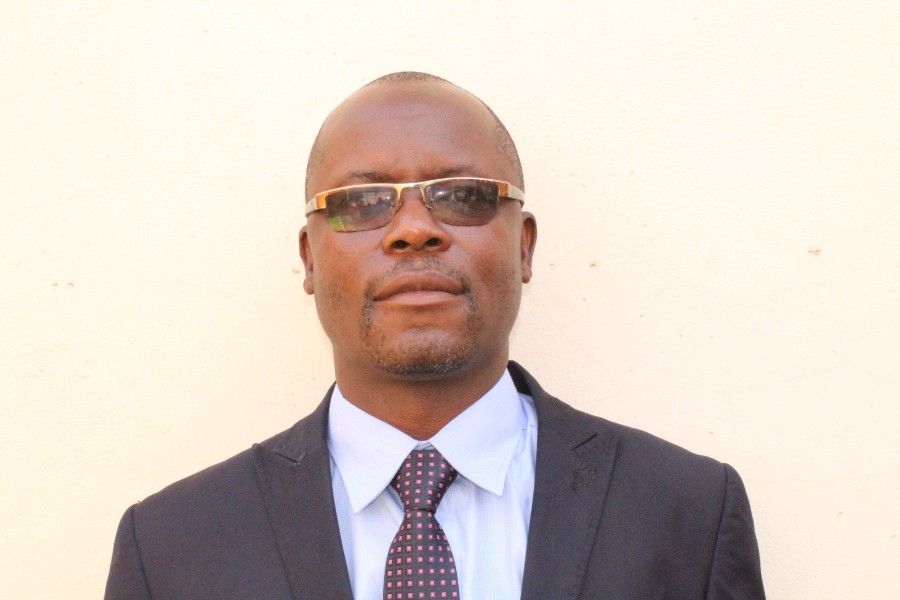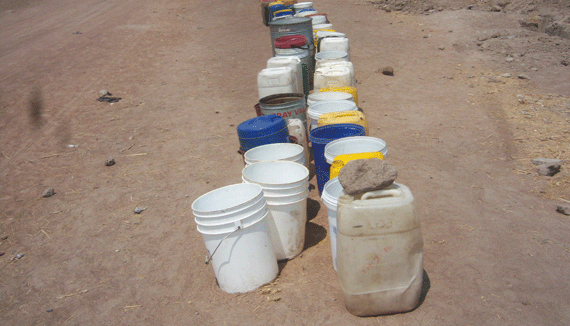
By Albert Masaka AS promised last week, we dwell on the trailblazing journey of an opposition politician, Maxwell Mavhunga, the Citizens Coalition for Change (CCC) member of parliament for Chitungwiza South, a big constituency that covers Unit L, M, N, O, P — all in Seke.
After interviewing him at his law Chambers in Harare, I wondered why Chitungwiza, rich with all these thought leaders who were positively impacting the country, was in such a sorry state.
However, while penning this column, it dawned on me that the great lawyer and politician, who rose from humble beginnings as a builder’s son in a rural set up in Bindura, had all but answered my concerns.
Parly role
Explaining to me the MPs role in a functioning democracy, Mavhunga bemoaned the fact that it had been diluted to that of a community developer than a lawmaker.
“Unfortunately, because of our situation, we are the closest to the people and are forced to fork out our resources.”
“It’s not supposed to be like that, the primary role of an MP is to consult the community regarding which laws must be changed and repealed.
“The other critical role is oversight over government and council activities and following up on the Executive to ensure it complies with the law.
- Chamisa under fire over US$120K donation
- Mavhunga puts DeMbare into Chibuku quarterfinals
- Pension funds bet on Cabora Bassa oilfields
- Councils defy govt fire tender directive
Keep Reading
Of course, the legislators also touch on development, through the Constituency Development Fund, ensuring that they plough those funds in the community.
Lessons learnt
On the issue of policy and legislation, Mavhunga noted that the problem was that the country’s legislation was not emanating from parliament, but from the Executive.
As a result, due to Zanu PF’s domination of the Executive, laws favourable to the ruling party were passed, at the expense of the general populace.
“During Covid, this is exactly what happened bills were actually bulldozed because the Executive has ruling party interests.”
“Unless and until a minister has brought a bill, we hardly have any process of lawmaking initiated by MPs and then we start debating on that bill,
“Our role is relegated to going for public hearings for people’s views and then present a report to Parliament.
He cited the case of the issue of disputed elections on the cards, but no Electoral Bill has been presented by the minister
We have the Marriages Bill, which is now the Marriages Act and the Private Voluntary Organisations Bill, but there was no Electoral Bill.
“Private organisations like ZESN are trying to bring in bills into Parliament, they presented the bill to the committee justice and legal and parliamentary affairs, but under normal circumstances the minister is supposed to be doing that.
“The basic problem is the law itself, it says if you want to move a Private members bill… one that is not coming from the executive, that bill can only be moved by private citizens or private MPs if it does not have financial implications on the fiscus.”
Whipping system and recall clause.
He attacked the whipping system which was behind the ululating in the August House particularly by Zanu PF praise-singers
“Once the party has taken a position of a particular bill then all members of that political party will vote along those lines otherwise, they will revoke the recall clause in the constitution, which I think it’s a very retrogressive practice because you are MP.
He argued that an MP elected on a party ticket, represents all members of his constituency and must air their views not the party’s.
Power of committee chairpersons
His experience is that in politics numbers do count and chairpersons of committees who are from Zanu PF are very powerful and influences how the proceedings go.
“If you go for public hearings, you can actually tell that the public is of this particular view, but when the report is being prepared you can see some doctoring and you cannot do anything about it.”
Achievements in Parly
Mavhunga is a member of the Parliamentary Legal Committee, a committee only comprised of lawyers.
“We scrutinize and check on the constitutionality of bills, statutory instruments.
Among its successes, the committee has identified and raised the red flags on areas that need modification or are unconstitutional and also guided debate in Parly.
“An example of the former minister of Lands honorable Perrance Shiri, he wanted to criminalize anyone who fails to pay back contract farming inputs.
‘We said it cannot be criminalized, this is a contract between an individual and government and if there is a breach of contract this is civil case and eventually the bill was struck out.
The MPs have also contributed to the civil society at their workshops educating them on the role of MPs so that they can educate communities.
Despite being a minority in terms of voting in Parliament, the least that opposition legislators can do is to enlighten their peers during debates.
“I will gave the Pomona deal as an example, we made a lot of noise about it, everyone now knows what is happening.”
Effective political leadership, integrity, corruption
Mavhunga added that the lack of integrity was behind the rampant corruption scandals involving politicians including Cabinet ministers
“Look at the crisis in government, in the past two years or so President Mnangagwa has fired how many ministers? So it goes back to how these ministers were elected or appointed.”
However, he was happy of the move in the opposition CCC to involve the community in choosing its leaders.
“This should apply across board because it involves the development of the country.
In terms of international best practices, a politician is a leader in a community and every leader should have integrity, it does not matter which side of the political spectrum you belong to.
“We should not say that just because he was throwing stones during a demonstration or very good at a speech at this funeral he should be an MP.”
Electioneering
He implored candidates to desist from lying or exaggerating during electioneering but be sincere with people.
“Hosiah Chipanga once said they promised as a bridge but they was no river, these are the things that get us discredited in our communities.”
Polarisation/tolerance
Tolerance is the bane of the country’s politics Mavhunga said.
“Our society is highly polarised, either you are Zanu PF or you are an enemy, either you are CCC or you are an enemy and either you are MDC A or you are an enemy.
“(CCC) President Chamisa once said I won’t walk to State House over dead bodies. This is a result of polarization.
The primary role of a leader or politician is to listen and accept criticism.
“This is an area where some fail because once you are criticized you think someone is against you or attacking you, he maybe attacking you, fine but in that attack you must pick one or two things and you must learn to handle such people.”
In some cases like in the Nyatsime case there was a partisan approach to issues.
“If there is violence it means they is no interaction between the leaders in that community.
‘You can not have everyone as a friend some will be clearly against you so this is in short how but you should have a way to allow them to exercise their rights. “
This is how he has tried to keep his constituency together and minimize cases of intolerance and political violence.
“I was engaged by a Zanu PF group from Zanoremba which was being charged of political violence because of intraparty issues, I looked at the papers I agreed that they were victims in that particular case, victims of their own party from another faction which was more violent.
Career
He begun lecturing at Trust Academy while still a student at UZ, at one point at Denmark and later at Speciss College teaching commercial law to students.
“I went into private practice soon after graduation, but of note I also had an interest in commercial law, business law and corporate law.
He also wrote two modules for use in these colleges business law for ZAAT and another corporate law for CIS and Acca students.
He was supposed to finish his law degree at the University of Zimbabwe (UZ) in 1998 but because of political activism he finished a year later after the university was shut down for almost a year.
“We were in the same class with the late Learnmore Jongwe (late) and honourable Daniel Molekele from Hwange Central.
Politics
He became the secretary for legal affairs in then MDC T in 2014 at provincial level.
Later at congress he was elected as the secretary for Harare province.
“As CCC we have not yet established structures, we are there on an interim basis until the leadership gives direction.
Family
The couple has three children, two of them are at boarding school and one is with us at home.
Drug use
He urged youths to refrain from taking illicit drugs.
“We buried so many of them and will continue. We know that things are tough, but they are killing a population.
- The columnist Albert Masaka is the founding editor of a community newspaper entitled Zim Community News. For feedback on this column you may contact him at: Cell 0776963414 or email: [email protected].










